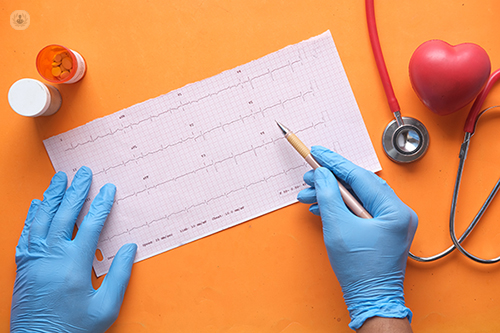What are palpitations and when should you be concerned?
Autore:Palpitations are sensations in which you feel your heart beating too quickly, too strongly, or irregularly. It’s a common experience that many people describe as feeling like their heart is “fluttering,” “pounding,” or even “skipping a beat.” Though they can feel alarming, palpitations are often harmless. However, they can sometimes be a sign of an underlying health condition, which is why it’s important to understand their causes and know when to seek medical advice.
We speak to a leading cardiologist, who explains more.

Why do palpitations happen?
Palpitations occur for a variety of reasons. Some of the most common causes include anxiety, stress, or physical activity. When we’re stressed or anxious, our bodies release adrenaline, which can increase heart rate and cause palpitations. Certain stimulants, like caffeine, alcohol, or nicotine, can also trigger palpitations by impacting the way the heart functions. In some cases, the heart’s rhythm might become irregular because of an electrolyte imbalance—this occurs when minerals in the body, such as potassium or sodium, are out of balance and interfere with electrical signals in the heart.
Palpitations can also be linked to other conditions, such as anaemia (a low red blood cell count), thyroid disorders (especially an overactive thyroid), and dehydration. Pregnancy and certain medications, such as asthma inhalers or some cold medications, can also cause palpitations. While these causes are often temporary and not dangerous, it’s essential to monitor the frequency and duration of your symptoms.
Could palpitations indicate a heart condition?
In some cases, palpitations can signal a heart problem. Conditions such as arrhythmias, which are irregular heartbeats, can lead to palpitations. Arrhythmias may include atrial fibrillation, where the upper chambers of the heart beat irregularly, or tachycardia, where the heart beats faster than usual even at rest. Heart valve issues, which are problems with the heart’s valves that control blood flow, may also lead to palpitations.
If you have palpitations along with chest pain, dizziness, fainting, or shortness of breath, it could indicate a more serious issue, and it’s vital to seek medical attention right away.
How can I manage or prevent palpitations?
If your palpitations are due to lifestyle factors, there are several changes you can make that may help. Reducing caffeine and alcohol intake, avoiding nicotine, and managing stress through activities like deep breathing, exercise, or meditation can be beneficial. Staying hydrated and maintaining a balanced diet with enough essential minerals is also helpful.
For those with palpitations due to medical conditions, treating the underlying issue is key. For example, if palpitations are caused by an overactive thyroid, managing thyroid levels through medication will likely reduce symptoms. It’s best to consult with a healthcare provider to determine the cause and proper treatment plan.
When should I see a doctor for palpitations?
If your palpitations are occasional and brief, they’re usually not a cause for concern. However, you should see a healthcare provider if you experience frequent or prolonged palpitations, or if they occur alongside other symptoms like light-headedness, fainting, or chest pain. A doctor may conduct tests, such as an electrocardiogram (ECG), to examine your heart’s electrical activity, or blood tests to check for other health issues.
Remember, while palpitations are often benign, it’s always wise to discuss them with a medical professional if you have concerns.


